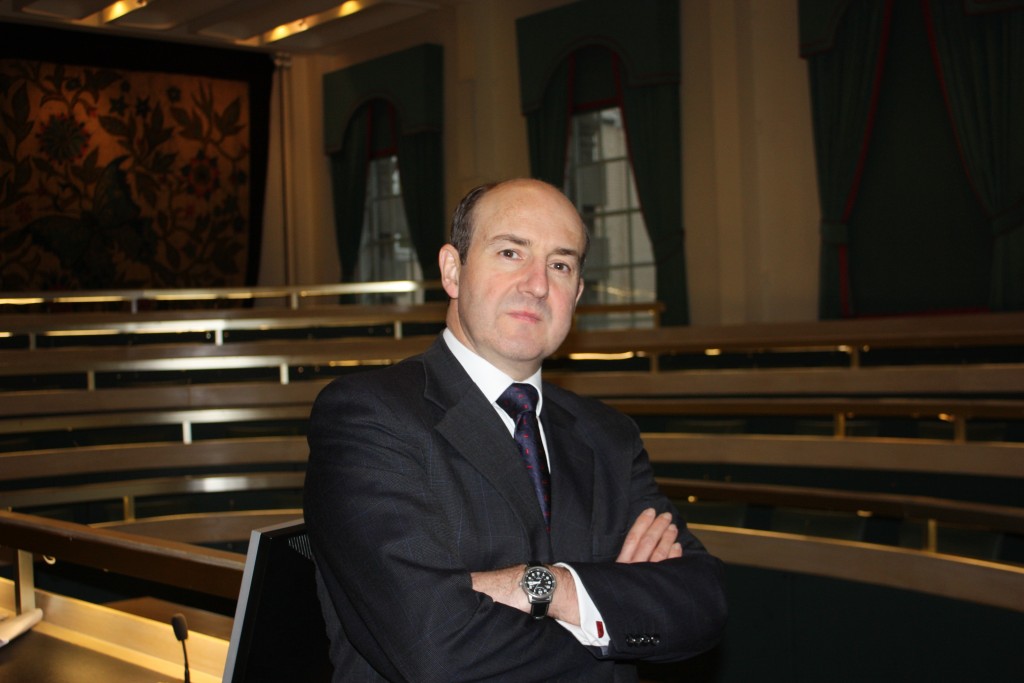Guest blog: The ICAEW’s Michael Izza is wrong on UK status
18 March 2016
By Tony Shearer
 In the current issue of economia, house magazine of the Institute of Chartered Accountants in England and Wales, the institute’s chief executive Michael Izza (pictured right) let it be known that the UK had, once again, become one of the world’s ten least corrupt countries, citing Transparency International’s 2015 “global corruption perceptions index” as evidence. Izza even suggested this was due to David Cameron’s anti-corruption programme. (How much transparency are we willing to accept, by Michael Izza, Economia, March 2016)
In the current issue of economia, house magazine of the Institute of Chartered Accountants in England and Wales, the institute’s chief executive Michael Izza (pictured right) let it be known that the UK had, once again, become one of the world’s ten least corrupt countries, citing Transparency International’s 2015 “global corruption perceptions index” as evidence. Izza even suggested this was due to David Cameron’s anti-corruption programme. (How much transparency are we willing to accept, by Michael Izza, Economia, March 2016)
However the index Izza cites is, in fact, highly misleading. Corruption in the UK is more subtle and insidious than it is in many other countries. Indeed the current prime minister, like his two immediate predecessors and the chancellor, runs a nasty group of operators inside Downing Street whose methods including bullying, the awarding and removal of government contracts, the greasing of the revolving door between the corridors of Whitehall and the investment banks of the City and “Big Four” accountancy firms, as well as other forms of patronage, to manipulate opinions and behaviours.
John Longworth, who recently stepped down as director-general of the British Chamber of Commerce, has described some of their antics, including the regular “SHITOGRAMS”. These covert forms of corruption can have just as detrimental an effect as the more obvious forms; possibly more so as their existence is less well recognized, seemingly even by the chief executive of the ICAEW.
Sadly much of the UK’s system of financial regulation has been similarly corrupted. The ICAEW is no longer responsible for setting accounting standards, or disciplining its own members for their audit failures and other offences. These functions have been taken over by organisations set up, and ultimately controlled by, the government through proxies such as the Bank of England, the Prudential Regulation Authority, the Financial Conduct Authority and the Financial Reporting Council. None of these is, or acts as if it is, independent. These organisations appear to have been created to put groupthink into practice; government simply doesn’t want people to think differently to it.
Those who are charged with overseeing auditor regulation and establishing accounting standards that give a “true and fair view” have failed lamentably to enforce proper behaviours, probably because they have been “captured” by the very accountants and accountancy firms that they’re supposed to regulate.
Are the activities of, for example, the Bank of England, the PRA, the FCA, and the FRC not influenced (or even directed) by the government? Do the larger firms of auditors not also influence the setting of accounting standards and the outcomes of auditor disciplinary processes? And why has the ICAEW taken no action against those of its members who are leaders in tax avoidance and evasion?
Sadly, the ICAEW chief executive doesn’t recognise the subtle forms of corruption that are influencing the activities of the institute’s members. We need some transparency closer to home.
I have seen this insidious corruption at first hand throughout my career in the City; including when I was a partner in Deloitte Haskins & Sells (which later became PwC), and as chief executive of Singer & Friedlander in 2005 when it was bought by Kaupthing, the Icelandic bank. Kaupthing and Singer & Friedlander both went bust in 2007, even though my fellow directors and I had warned the Financial Services Authority that they should not approve the Kaupthing management as “fit and proper” people to a run a bank.
How the FRC, which is to all intents and purposes a puppet of the Treasury and Big Four accountancy firms, respond to the HBOS challenge laid down by Andrew Tyrie MP and the Treasury Select Committee is going to tell us a great deal.
Short URL: https://www.ianfraser.org/?p=11694

Yes, my experience of ICAEW is just as you suggest. The ICAEW don’t seem interested in professional standards for its members. The Code of Ethics is just there on their website to give a show of respectability.